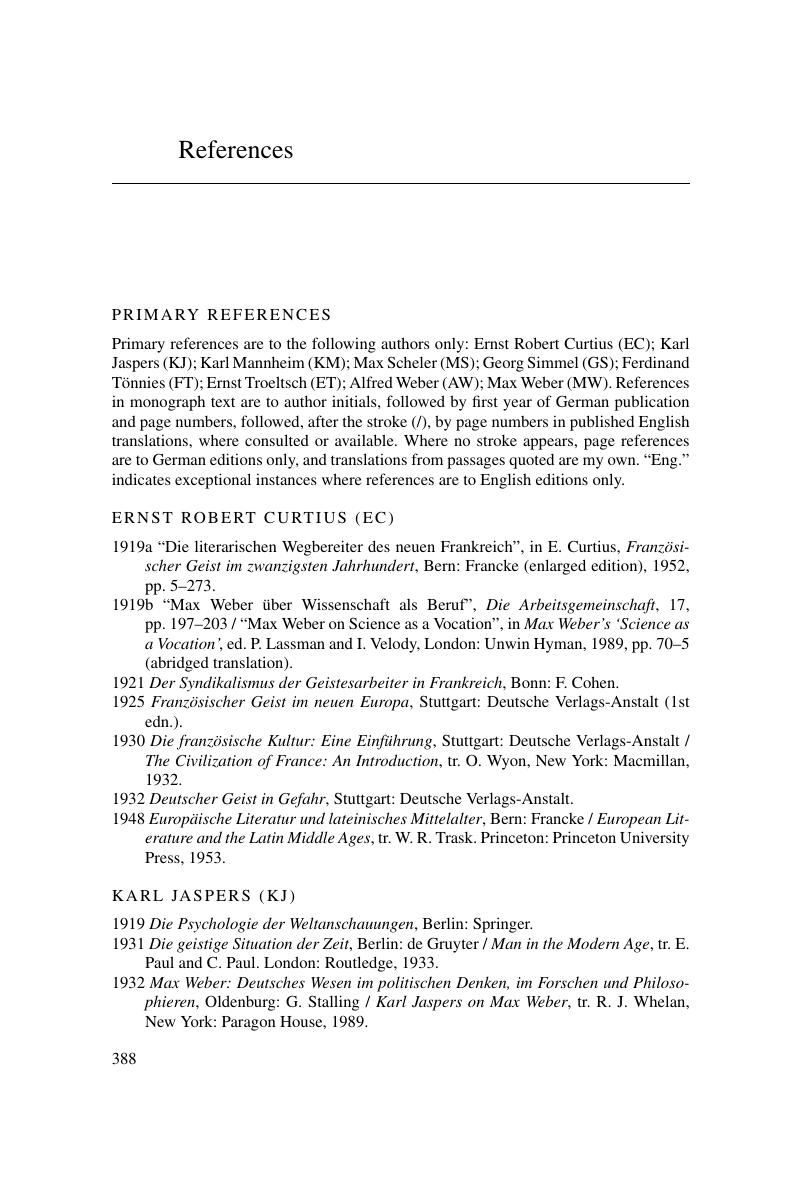Book contents
- German Cosmopolitan Social Thought and the Idea of the West
- Advance praise forGerman Cosmopolitan Social Thought and the Idea of the West
- German Cosmopolitan Social Thought and the Idea of the West
- Copyright page
- Contents
- Preface
- Introduction
- 1 Social theory and the West
- 2 Europa in Weimar
- 3 Weimar liberal social theorists
- 4 European nations and the Great War
- 5 A Romano-Germanic nexus
- 6 Universalhistory
- 7 Humanism and Europe
- 8 Europeannihilism?
- 9 Protesting the West: yesterday and today
- References
- Index
- References
References
Published online by Cambridge University Press: 05 March 2016
- German Cosmopolitan Social Thought and the Idea of the West
- Advance praise forGerman Cosmopolitan Social Thought and the Idea of the West
- German Cosmopolitan Social Thought and the Idea of the West
- Copyright page
- Contents
- Preface
- Introduction
- 1 Social theory and the West
- 2 Europa in Weimar
- 3 Weimar liberal social theorists
- 4 European nations and the Great War
- 5 A Romano-Germanic nexus
- 6 Universalhistory
- 7 Humanism and Europe
- 8 Europeannihilism?
- 9 Protesting the West: yesterday and today
- References
- Index
- References
Summary

- Type
- Chapter
- Information
- German Cosmopolitan Social Thought and the Idea of the WestVoices from Weimar, pp. 388 - 424Publisher: Cambridge University PressPrint publication year: 2016



